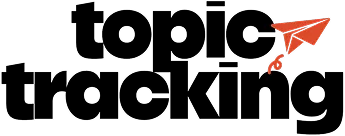The workforce is undergoing a seismic shift as artificial intelligence (AI) and automation continue to reshape industries. While some fear job displacement, others see this transformation as an opportunity for growth and innovation. Technology is changing the skills required to succeed, forcing professionals to adapt. Understanding which jobs are safe, which are evolving, and how to future-proof your career can help you stay ahead in a tech-driven world. Those who embrace change will thrive in this new era of work.
The Rise of Automation and AI in the Workplace
AI and automation are no longer futuristic concepts—they are actively streamlining processes across various industries. From chatbots handling customer service inquiries to AI-powered analytics transforming financial forecasting, businesses are increasingly relying on intelligent systems to improve efficiency and reduce costs.
Key Areas Where AI and Automation Are Advancing:
- Manufacturing – Robotics and AI-driven assembly lines are reducing human labor in repetitive tasks.
- Retail & E-commerce – Automated checkout systems and AI-driven customer recommendations are enhancing the shopping experience.
- Healthcare – AI is improving diagnostics, streamlining administrative tasks, and even assisting in robotic surgeries.
- Finance – Algorithmic trading, fraud detection, and AI-driven financial planning are becoming standard.
- Marketing & Advertising – AI-powered tools are optimizing ad campaigns, content creation, and customer engagement.
As AI technology advances, it will continue to alter how we work, leading to shifts in job responsibilities and demand for new skill sets.
Jobs That Are Safe from Automation
While some roles may be at risk, others remain secure due to the human qualities they require. Careers that emphasize creativity, emotional intelligence, and problem-solving are less likely to be replaced by AI.
Industries with AI-Resistant Jobs:
- Healthcare & Social Work – Nurses, therapists, and social workers require empathy and human connection, making them irreplaceable.
- Creative Industries – Writers, designers, and artists use imagination and originality, areas where AI still struggles.
- Skilled Trades – Electricians, plumbers, and mechanics rely on hands-on problem-solving, which AI cannot easily replicate.
- Education & Training – Teachers and corporate trainers provide personal mentorship and adaptability that automation cannot match.
- Cybersecurity & Ethical AI Roles – As AI grows, so does the need for professionals who can regulate and secure these technologies.
While these careers are considered safer, they will still require digital literacy and continuous learning to integrate AI advancements effectively.
Jobs That Are Evolving Due to AI
Some roles won’t disappear but will undergo significant transformations. Instead of eliminating jobs, AI is likely to augment them, shifting focus from repetitive tasks to higher-level strategic work.
Jobs Adapting to AI:
- Software Developers & IT Professionals – AI can generate code, but human oversight and complex problem-solving will remain critical.
- Marketing Specialists – AI automates analytics and content creation, but human creativity and strategy will drive campaigns.
- Data Analysts & Scientists – AI can process large datasets, but professionals are needed to interpret findings and make informed decisions.
- Project Managers – Automation can track progress, but leadership and human coordination are essential for project success.
- Legal Professionals – AI can research case law and draft documents, but lawyers provide judgment and client advocacy.
Rather than replacing these professions, AI is changing the way work is done, making adaptability crucial for long-term career success.
How to Stay Relevant in an AI-Driven Workforce
The best way to future-proof your career is to embrace lifelong learning and develop skills that complement AI rather than compete with it.
Key Strategies to Remain Competitive:
-
Develop Tech Literacy
- Understanding AI and automation tools is becoming a necessity, even in non-technical fields.
- Learn how to use AI-driven platforms relevant to your industry, such as ChatGPT for content creation or Tableau for data visualization.
-
Strengthen Soft Skills
- Critical thinking, problem-solving, and emotional intelligence will remain highly valuable.
- Leadership, communication, and collaboration will differentiate humans from machines.
-
Upskill and Reskill Continuously
- Take advantage of online courses, workshops, and certifications in emerging technologies.
- Fields like cybersecurity, AI ethics, and human-AI collaboration are expected to grow.
-
Build a Resilient Mindset
- Adaptability is key in a rapidly changing job market.
- Embrace new challenges and be willing to pivot your career path when needed.
-
Network and Stay Informed
- Engage with industry communities, attend tech conferences, and follow AI developments to remain ahead of trends.
- Networking with professionals in AI-driven fields can open new opportunities and collaborations.
Embracing the Future of Work
AI and automation are undeniably reshaping career paths, but they don’t have to be a threat. By staying proactive, continuously learning, and developing uniquely human skills, professionals can position themselves for success in an evolving workforce. Rather than resisting technological change, those who leverage AI as a tool to enhance their abilities will find themselves in the best position to thrive in the future of work.

